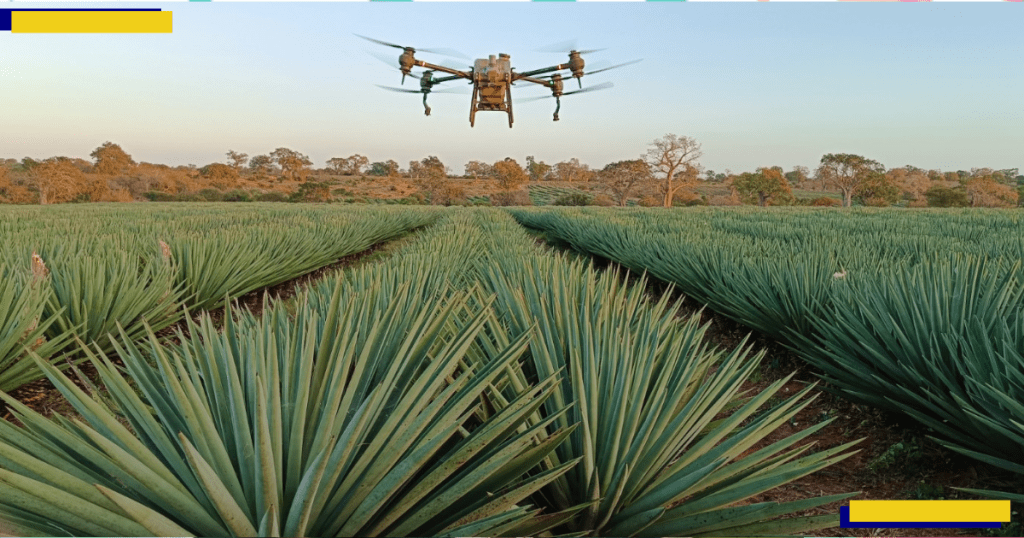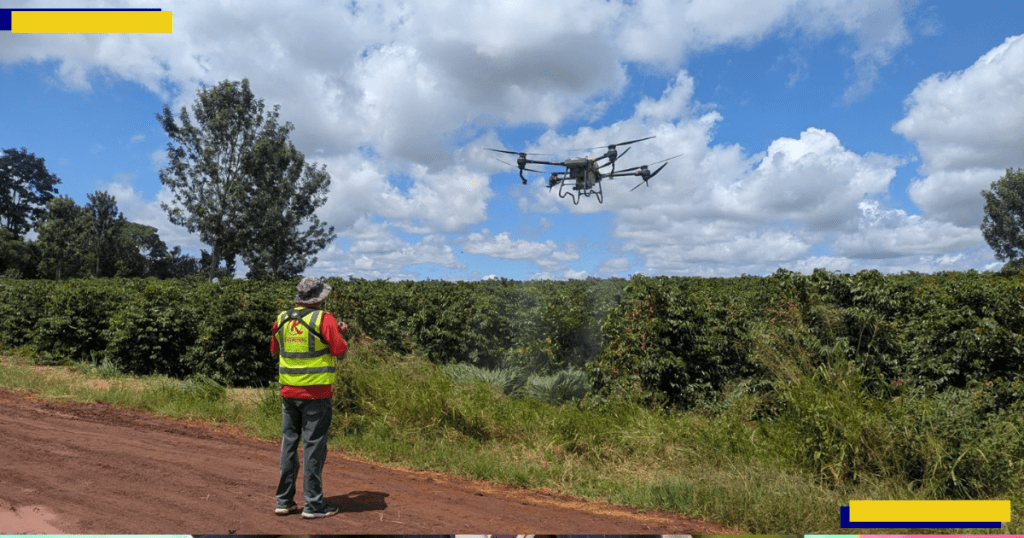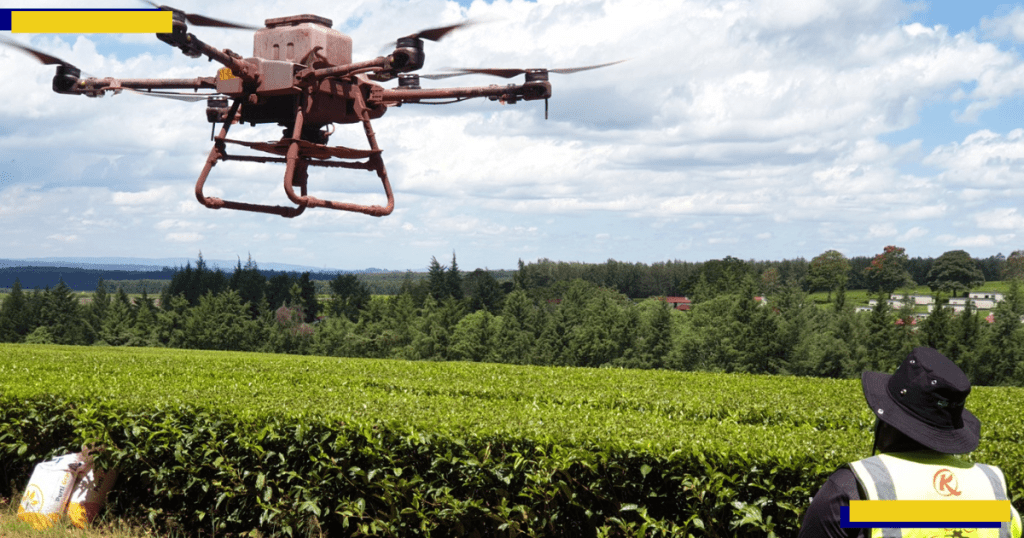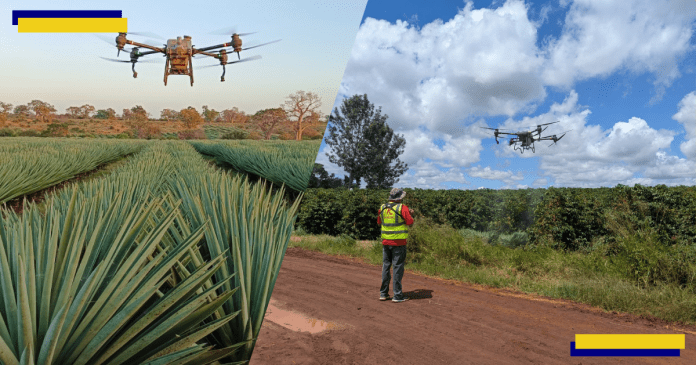The use of drones has long been linked to security and film production in Kenya and beyond. But a new wave of innovation is taking flight: farmers across Kenya are now harnessing drone technology to transform agriculture, boosting yields, cutting costs, and making precision farming accessible to even small-scale growers.
Bizna Kenya spoke with officials from Fahari Aviation to understand how these high-tech gadgets are being deployed on Kenyan farms, their advantages, and what type of farmers qualify to use them.
Launched in 2020, Fahari Aviation is a subsidiary of Kenya Airways focused on the practical application of future aviation technologies, including unmanned aircraft systems (UAS).
“We focus on delivering practical, technology-driven solution, turning innovation into real-world impact,” said Fahari Aviation in an exclusive interview with Bizna Kenya.

Drones are not just for the big boys
According to Fahari Aviation, the biggest misconception that many people have is that drones are a rich man’s toy. Fahari Aviation notes that many smallholder farmers assume drone services are too high-tech or too expensive. But that’s not the case anymore.
“We empower Kenyan farmers, from smallholders to large estates. Our drones handle spraying, spreading, seeding, crop health assessments, and mapping, all with precision and speed. This means better yields, less waste, and more bang for every buck spent.”
To break down barriers, the company runs live demonstrations and partners with community groups to show farmers exactly how drones work on the ground.
“Awareness is our biggest hurdle. Once farmers see the results firsthand, the hesitation usually fades,” Fahari Aviation admitted.
Sharing the skies
Understanding that individual ownership of drone tech may still be out of reach for many smallholders, Fahari Aviation has designed smart solutions for accessibility.
“We use a flexible pricing model based on land size and service type. By working with cooperatives and aggregators, we help farmers pool resources and get drone services as a group.”
Even in areas with poor connectivity, they partner with local organizations to coordinate drone activities, ensuring no farm is too remote to benefit.

From manual to magical
One standout success story involved small-scale farmers who used to rely entirely on manual labor for spraying. After being introduced to drone services, they saw real change.
“They’ve been able to manage larger plots, increase efficiency, and cut back on chemical use, without buying expensive equipment. It’s been a game-changer in scaling sustainably,” Fahari Aviation shared.
And the numbers back this up. Farmers using drones report up to 40% less chemical usage and major reductions in labor costs. Environmentally, this also means less soil disruption and fewer chemicals running off into nearby water sources.
Beyond the convenience and speed, drones offer a data-rich approach to farming. With every flight, they collect information on crop health and soil conditions, enabling farmers to make more informed decisions.
“Drones bring speed, accuracy, and minimal soil disturbance. They can cover tough terrain and apply inputs only where needed, cutting waste and boosting productivity.”
To reach even more farmers, Fahari uses field demos, trainings, and social media campaigns. It’s all part of a push to normalize this tech in day-to-day farming, not just in high-tech labs or corporate farms.
Fahari Aviation operates under the Kenya Civil Aviation Authority (KCAA), with full certification as a drone operator, training provider, and authorized reseller.
“We also help clients navigate licensing and ensure all operations meet safety standards,” they noted.

Beyond the fields
Apart from agriculture, Fahari Aviation has expanded into surveying, conservation, emergency response, infrastructure inspections, and even security.
“Our vision is to integrate drones across industries to enhance safety, efficiency, and decision-making,” they said.









